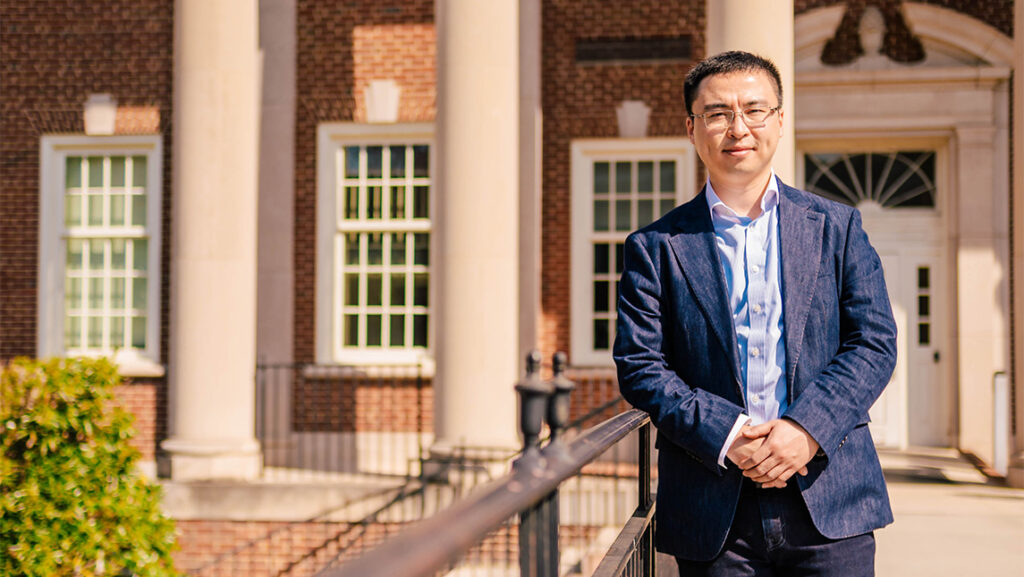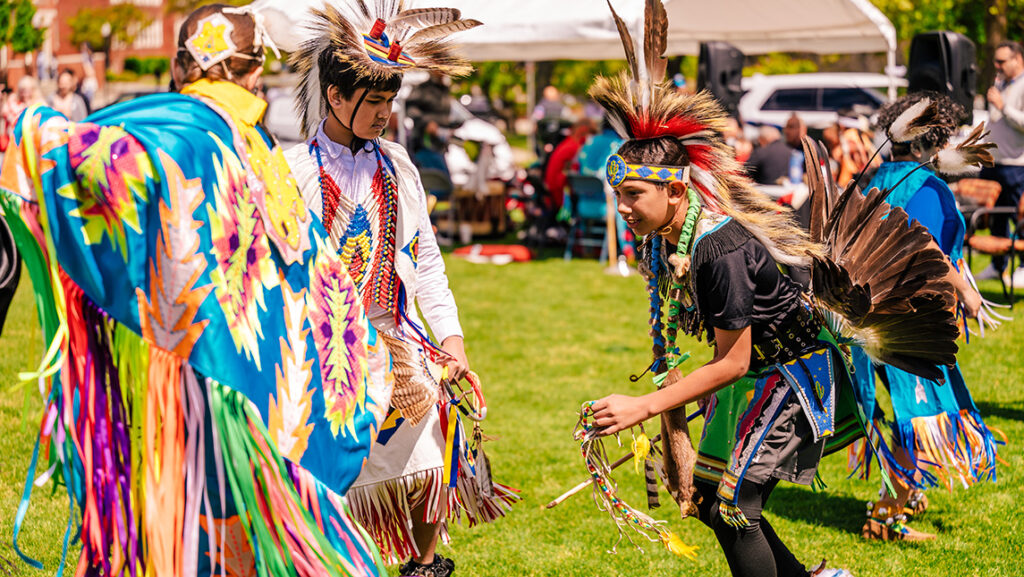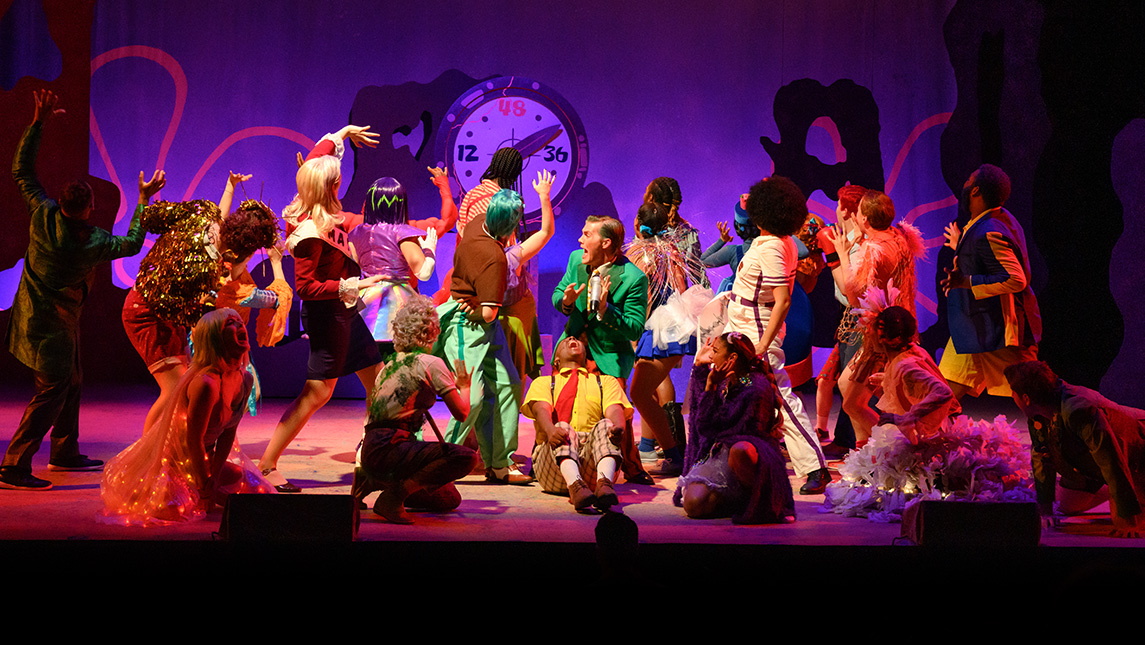
When the curtain rose on opening night for “Sweat,” it was the first time in two years that actors at UNC Greensboro did not have to wear masks onstage.
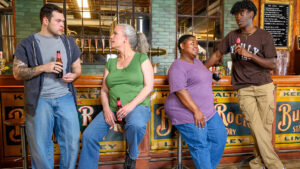
“It brought tears to my eyes being in the theatre. It was like, ‘Wow, we made it!'” says MFA Directing Program Coordinator John Gulley.
And more students got to perform face covering-free in “The SpongeBob Musical,” the School of Theatre‘s most recent and largest production since 2020, which sold more than 2,300 tickets.
For “SpongeBob” Director and Musical Theatre Professor Erin Speer, it was a blessing to see the actors’ entire faces. “There’s so much under a mask, so much detail. The first day I got to see it without their masks on, I was like, ‘Oh, that was happening under there.’ It was delightful.”
During the height of the COVID-19 pandemic, only ten people were allowed in the audience.
“This whole past year, we’ve had seat covers, closing out seats,” says Chip Haas, the technical director. “It’s been really nice to start pulling those back again.”
The show must go on…safely
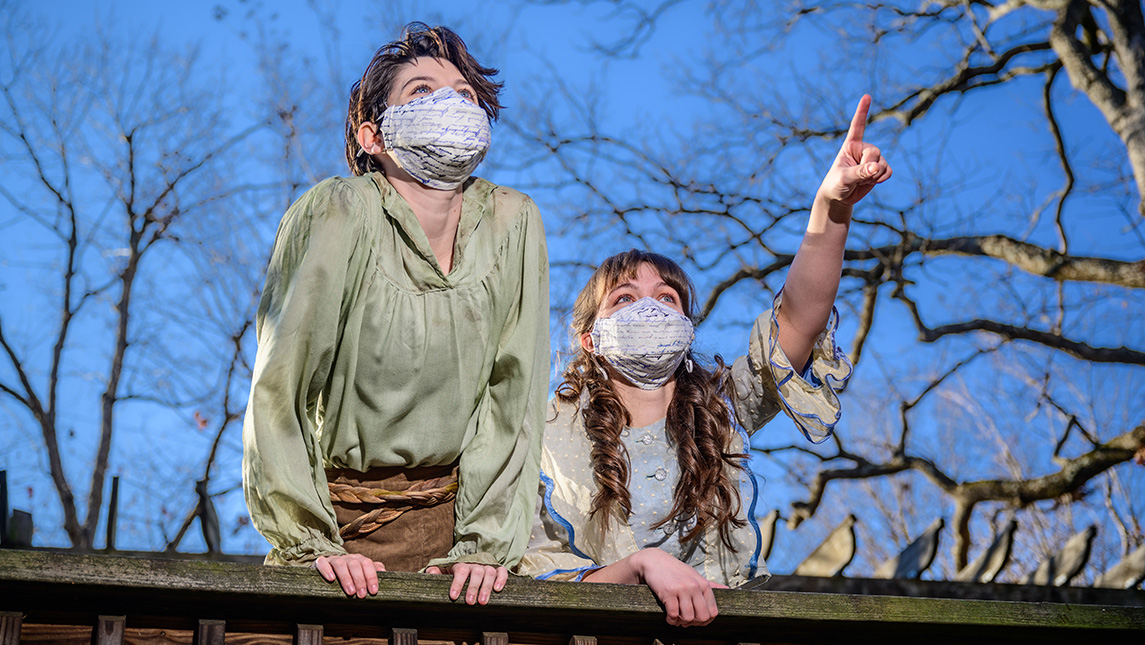
Haas has worked on theatrical productions for thirty years. Nothing could prepare him for performing through a pandemic. He turned to workshops and message boards where professionals were asking the same questions he had.
“I’ve read more medical materials, more medical journals, trying to figure out masks and air filters and stuff like that – stuff I never thought I’d ever need to know about.”
Even as classes across the nation moved online, faculty in the School of Theatre knew stage performances had to continue in some way.
“We were determined that the show must go on,” says Gulley, “But the show must go on safely.”
The costuming department designed special masks for singers. They did their best to incorporate them into the costumes and wrestled with how to attach a microphone around them.
“They sit off of the actors’ faces so that their mouths are free to move, and that sound doesn’t feel muffled,” says Speer. “They’re huge. They look like duck bills coming off of their faces.”
Roll the cameras
It was a learning opportunity for students, Speer says, to perform without the energy drawn from a large audience. Only a small number of students, faculty, and staff were allowed to watch inside Taylor Theatre, which seats more than 400. Family and friends livestreamed recordings of the performances.
“Something that you learn, when you go out in the world, and you do eight shows a week for 14 years, is that you should be committed to the action anyway and committed to the people that are onstage with you.”
Gulley says, “You just need an audience in there. You can only go so far without one. It’s an interactive, live event. And you get tired of the director and stage managers all trying to laugh at the same jokes.”
Students also recorded new works. Speer initiated the “Hear Our Voices” project in Fall 2020, then three Spartan New Musicals films over the course of 2021 – “Radio: A Musical Ghost Story,” “Flatbush Avenue,” and “One Week at Woolworths” – all by writers from traditionally marginalized groups.
“They wrote these musical projects for our students specifically, which was so cool,” she says. “We took the reins off of the writers, too, because we wanted them to create.”
It was not easy to transition back to more elaborate productions.
“We’re feeling it this year,” says Haas. “We’ve got more inexperienced students, and we’re rusty at doing the big shows. We haven’t done something as big as ‘SpongeBob’ in two years.”
Speers says those large productions provide great opportunities for mentorship between classes.
“Stage managers mentor the next generation of stage managers. Upperclassmen instill best rehearsal practices by demonstrating them.”
But even with the ongoing mentorship and support, some things are impossible to learn without practice.
“I had to remind myself during this most recent production of ‘SpongeBob’ that more than half of the cast hadn’t been on stage in a musical at UNCG.”
Embracing change
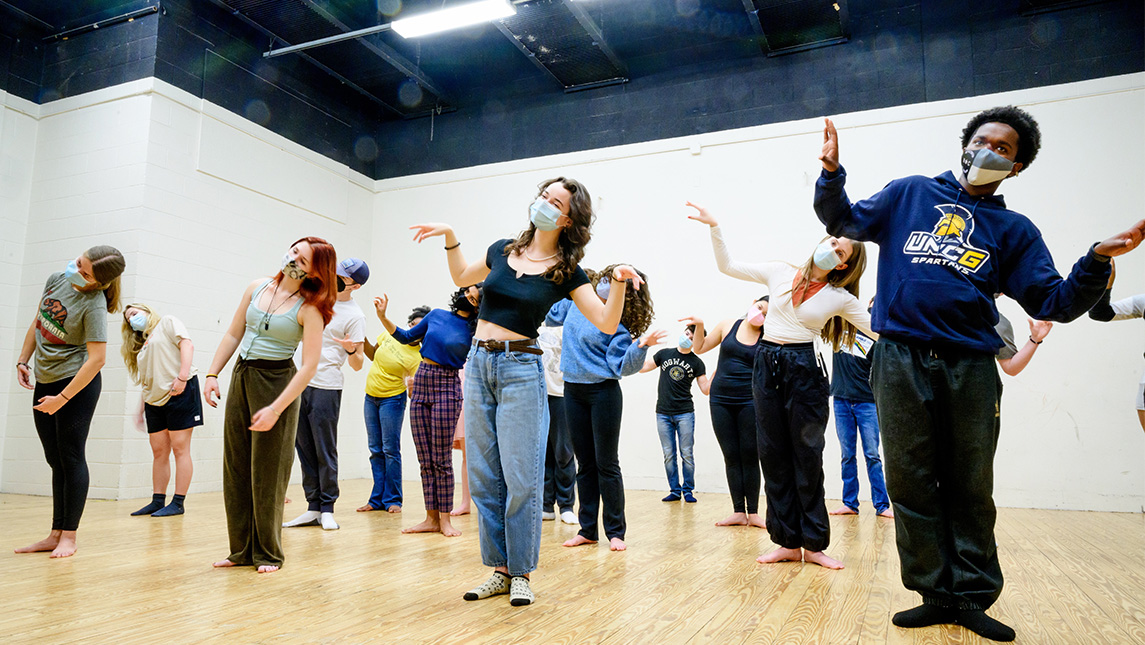
Speer now has a deeper appreciation for the stage experience. “I have started really thinking about what makes live performance different from film, and I think that’s audience engagement. I’ve come out of this pandemic interested in theatre that knows it’s theatre.”
The return to big productions did more than reveal what they had to relearn. They had to evaluate what they will keep from the pandemic years.
They say students will see this with professional productions in their future careers.
“One of the things that we’ve been talking about is consent,” says Speer. “That has been long overdue in dance and musical theatre. ‘Hey, is it okay if I touch you? Okay, where can I put my hand? And you can revoke your consent.’ Now is the right time to adopt that.”
Gulley says, “Auditioning by tape, auditioning with your iPhone, or sending in a video, as opposed to auditioning live, is becoming the standard practice now. That levels the playing field a good bit. It allows students who can’t get to New York or Atlanta for an audition a chance at opportunities they might have missed.”
The students’ enthusiasm made all the work worth it.
“There’s plenty of times, they could have just said, ‘Forget this. We’re done. What’s the point?'” says Haas. “Instead, they’ve kept at it, and I’m very appreciative of them for that.”
Story by Janet Imrick, University Communications
Photography by Martin W. Kane, University Communications

